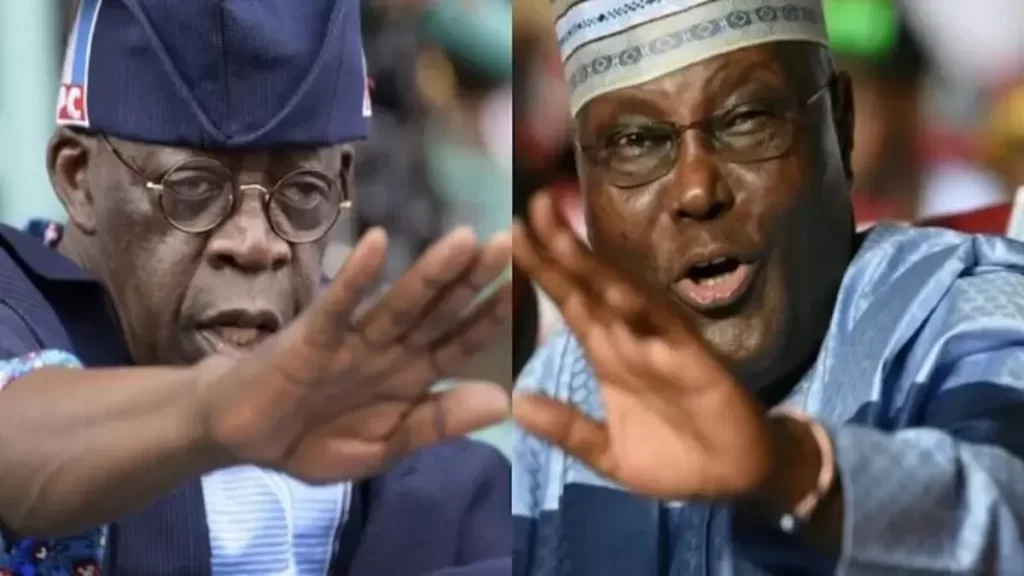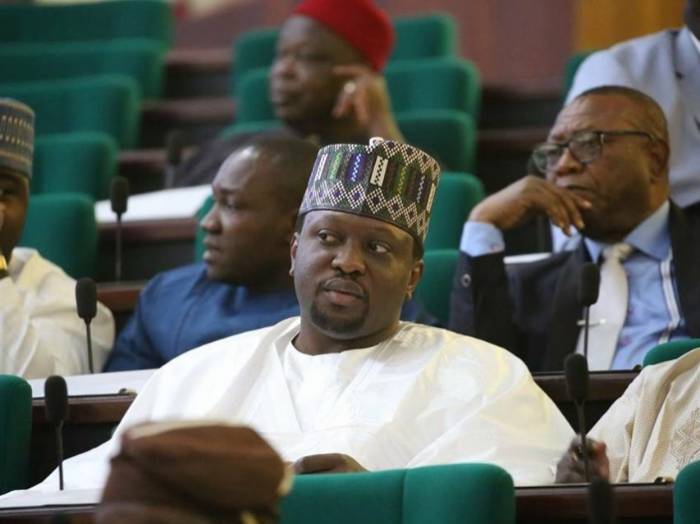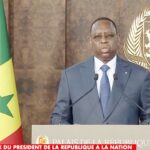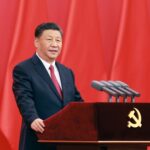Sixty House of Representatives members on Wednesday proposed a bill to amend the 1999 Constitution of Nigeria and return the country to a parliamentary system as a replacement for the current presidential system. The group, known as the Parliamentary Group, introduced a constitution alteration bill on the floor of the House of Representatives on Wednesday, setting in motion what could be a transition to a parliamentary system by 2031. Three constitution alteration bills were presented by the Minority Leader, Kingsley Chinda (PDP, Rivers), and 60 others during plenary.
Wale Raji, a lawmaker from Lagos State in the All Progressives Congress, was a prominent sponsor of the bill, which was read for the first time in the House of Representatives. The lawmakers cited the need to reduce government costs as well as robust policy debates as reasons for demanding a return to the parliamentary system.
One of the most significant differences between these two systems is that in a presidential system, the president is directly elected by the people, whereas in a parliamentary system, the legislature is supreme and elects a prime minister from among its members as the head of government.
There is also no clear separation of powers between the legislature and the executive because ministers are also appointed by parliament.
- The parliament will be bicameral, consisting of the House of Representatives and the Senate. The House of Representatives will have 360 members, who will be elected by the people for five-year terms. The Senate will have 109 members, who will be elected by the state legislatures for five-year terms. The parliament will be responsible for making laws, approving the budget, and overseeing the executive.
- The state governments will have their own governors, cabinets, and legislatures, which will have powers over local matters. The governors will be the leaders of the majority parties or coalitions in the state legislatures, and will appoint and preside over a cabinet of commissioners. The state legislatures will have proportional representation of the parties, and will be responsible for making laws, approving the budget, and overseeing the executive.
According the lawmaker Abdulsamad Dasuki representing Kebbe/Tambuwal Constituency, Sokoto State, over the years, the imperfections of the Presidential System of Government have become glaring to all in Nigeria despite several alterations to the constitution to address the shortcomings of a system that has denied the nation the opportunity to attain its full potential. Executive branch, which replaces the President and Vice President with a Prime Minister and Cabinet chosen from the legislature, could lead to a smaller central government, reducing salaries and administrative expenses.
Among these imperfections are the high cost of governance, leaving fewer resources for crucial areas like infrastructure, education, and healthcare, and consequently hindering the nation’s development progress, and the excessive powers vested in the members of the executive, who are appointees and not directly accountable to the people.
Nigeria operated under the parliamentary system pre-independence and in the First Republic. However, the coup of 15 January 1966 truncated that republic. The military suspended the civil government and ruled the country until the transition to democracy in 1979, but the Second Republic was built on the 1979 Constitution which prescribed the presidential system.
Nigeria abandoned the parliamentary system of government in 1966, when it was overthrown by a military coup led by Major Chukwuma Kaduna Nzeogwu and other young officers. The coup was motivated by various factors, such as the perceived corruption, nepotism, and incompetence of the civilian government, the ethnic and regional tensions and conflicts, the disputed 1964 and 1965 elections, and the influence of the Cold War and the decolonization movements. The coup resulted in the assassination of the Prime Minister, the regional premiers, and some senior military officers, and the suspension of the constitution and the parliament. The coup was followed by a counter-coup in July 1966, which led to the emergence of General Yakubu Gowon as the head of the military government. The military government introduced a unitary system of government, which abolished the regional governments and created 12 states. The military government also faced the challenge of the Nigerian Civil War, which broke out in 1967, when the Eastern Region seceded as the Republic of Biafra. The civil war lasted until 1970, when Biafra surrendered and Nigeria was reunited.
Thus, the proposal by the lawmakers is seeking to revert to the First Republic system with a prime minister, a member of parliament, serving as the head of government. his was part of the process of gradual self-government and independence from the British colonial rule, which began in 1946 with the introduction of the Richards Constitution. Then, the parliamentary system was based on the Westminster model of the United Kingdom, which was the former colonial power. The parliamentary system was meant to accommodate the ethnic, religious, and regional diversity of Nigeria, and to foster democracy and development.
This system fosters a close relationship between the executive and legislative branches, allowing for efficient decision-making and policy implementation.
The lawmakers seem not confident about their chances of success in getting the bill passed within the current Assembly, therefore, setting a timeline of 2031 for the constitutional amendment to allow the transition.
Under legislative election, there would be a shift in the process of electing governors and Chairmen of Local Governments from general election to voting within their respective legislative bodies. The parliamentary system, according to Dasuki, will potentially reduce “bureaucratic hurdles and foster closer collaboration between the executive and legislative branches.
The bill, if passed, will however require the assent of the president to become law and be enshrined in the Constitution.
If the president declines to assent, the National Assembly can override his veto with the votes of two-thirds of the members.
The bill, however, faces opposition from some quarters, who argue that the parliamentary system of government will not solve the problems of Nigeria, such as corruption, insecurity, poverty, and inequality, and that the bill is a distraction from the urgent issues of constitutional review and electoral reforms.
The parliamentary system of government that Nigeria practiced till 1979 offers some bright lessons for a time such as this.
The parliamentary system of government under the 1960 and 1963 constitutions was characterized by four main features:
- The separation of the head of state and head of government.
- The plurality of the executive.
- Parliamentary character of the executive.
- The responsibility of the ministers to the legislature. The plurality of the executive. It means that the executive is plural in the sense that the prime-minister is the head of the council of ministers. It is plural in the sense that the prime-minister has more than one vote in council meetings deliberations The head of state was the governor-general which later turned into the president under the 1963 constitution while the head of government was the prime-minister .It is the prime-minister with his cabinet members that coordinate the government while the governor –general plays a titular role.
- Parliamentary character of the executive, i.e. members of the executive are also members of parliament . It is the political party that has the largest number of votes that forms the cabinet. The responsibility of the executive to the legislature : Here, the legislature has greater control of the cabinet. They are actually fused. The legislature could pass a vote of no confidence on any of the ministers including the prime-minister. One complaint that has been recurring from the National assembly in this present Republic is the non-implementation of the budget which has led to infrastructural decay and the absence of the dividends of democracy.This cannot happen in a Parliamentary system of government where the legislature has greater control of the executive.
The collective responsibility under the parliamentary system of government will make long term planning easier and will effectively check any slide to civilian autocracy or dictatorship.
If Nigeria go back to the parliamentary system of government, it must jettison the state structure currently has. It cannot be fully practiced at the lower tiers of government because of their small nature. Nigeria has six geo- political zones. It should has regions along that line. The six regions will be namely: SOUTH- SOUTH region, SOUTH- EAST region, SOUTH-WEST region, NORTH-WEST region, NORTH-EAST region, NORTH-CENTRAL region. The six regions arrangement is a better response to agitations for more states than amending the constitution to create more states which is even hard to do under the present constitution. All the demands for more states can never be satisfied and actually it will address the structural imbalance in presently countryhas in the polity where the South has 17 states while the North has 19 states . The operation of the 1960 constitution was marred by a constitutional provision which in actual fact was intended to enforce the collective responsibility of the executive.

More on this story: Tinubu will face difficult decisions amid winning presidential race




